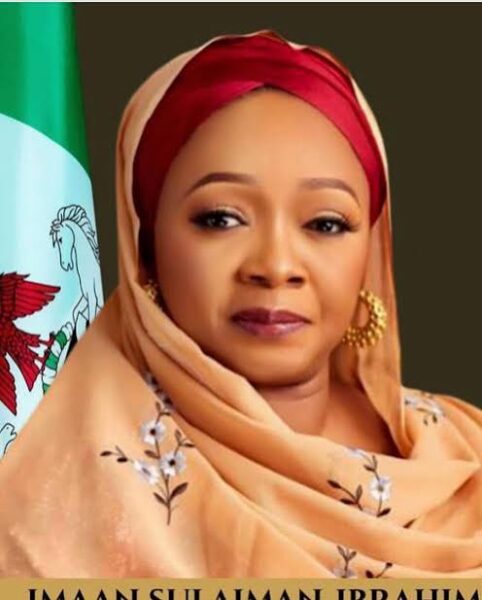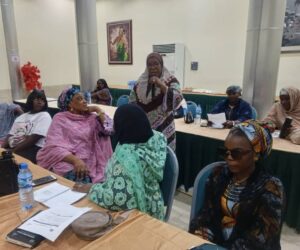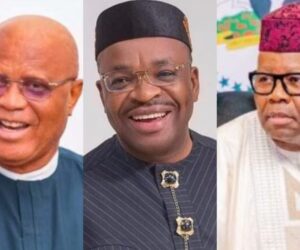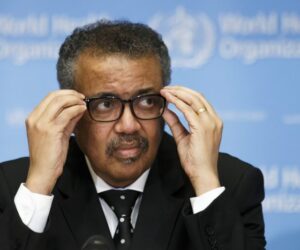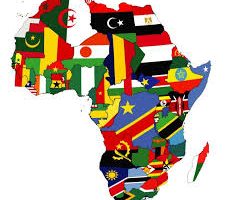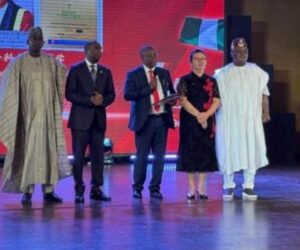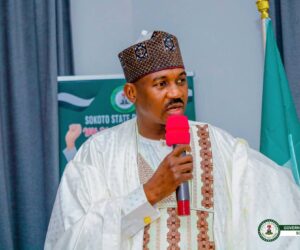…Set to launch, operationalise third NAP
As Nigeria joins other countries to mark the 25th anniversary of the United Nations Security Council Resolution 1325 (UNSCR 1325) on Women Peace and Security (WPS) the Minister of Women Affairs and Social Development,
Hon. Imaan Sulaiman-Ibrahim, has restated Nigeria’s commitment to building a peaceful, inclusive, and equitable Nigeria where women and girls live in dignity, security, and hope.
Sulaiman-Ibrahim in a press statement she personally signed to mark the anniversary, Friday, assured that: “Under the Renewed Hope Agenda of President Bola Tinubu, we will continue to champion women’s leadership as the cornerstone of peace, stability, and progress, because when women lead in peace, nations rise in strength, and when women rise, they lift generations, communities, and the destiny of a nation.”
She noted: “Twenty-five years ago, the world found a new language for peace; one that spoke through the strength, courage, and leadership of women. The adoption of UNSCR 1325 in October 2000 was a defining moment that recognised women not as bystanders but as indispensable actors in peacebuilding, conflict prevention, and national security.
“Nigeria proudly stands among the first African nations to domesticate this global agenda through the National Action Plan (NAP) on WPS…a living framework that ensures women’s participation, protection, and leadership are fully integrated into our national response to peace and security challenges.
“Since the first NAP in 2013 and the second in 2017, developed and launched with support from UN Women and other partners, Nigeria has sustained its leadership in advancing the Women, Peace and Security Agenda.”
The Minister further stated that, “Under the Renewed Hope Agenda of President Bola Tinubu, which places women, children, families, and the vulnerable at the heart of national development, the third NAP has been developed and approved by Mr. President.
“This Plan was crafted through an inclusive, multi-stakeholder process led by the Federal Ministry of Women Affairs with support from the UN system, key government agencies, development partners, and civil society organisations, reflecting collective ownership and shared accountability.”
Sulaiman-Ibrahim disclosed, “In the coming weeks, a national committee, drawn from relevant government agencies, security organisations, development partners, and civil society actors, will be inaugurated to launch and operationalise the third NAP and coordinate its implementation across all levels of governance. The Committee will also oversee planning activities to commemorate this milestone of 25 years of the WPS Agenda in Nigeria.”
On milestone achievements by Nigeria in WPS, she noted: “Significant institutional reforms have strengthened gender mainstreaming within the security sector, including the elevation of the Directorate of Gender in the Office of the Chief of Defence Staff and the establishment of Gender Desks across the Armed Forces; Nigeria Police Force (NPF) formations; and paramilitary agencies, providing platforms for policy oversight, advocacy, and enforcement.
“Nigeria’s achievements within the security sector underscore the transformation that UNSCR 1325 has inspired. Working in partnership with UN Women and other partners, we have witnessed institutionalised Gender Policies for the Armed Forces of Nigeria, the NPF, the Department of State Services (DSS), and the Nigeria Security and Civil Defence Corps (NSCDC), amongst others.
“These policies represent a bold shift towards inclusive security governance anchored on professionalism, accountability, and respect for human rights. Through these partnerships, we have deepened gender-responsive security practices, including capacity-building for security agencies to better protect women and girls in conflict and post-conflict contexts.
“The Security Sector Gender Reference Group has successfully held five annual sessions, fostering dialogue, reform, and accountability across agencies. The Federal Ministry of Women Affairs and Social Development as the institutional mechanism for the advancement of women, in collaboration with partners, will continue to strengthen the capacity of the security architecture to mainstream gender through training and retraining, ensuring sustained institutional competence and gender-sensitive operations.”
The minister further noted that,
“The outcomes are historic. Under the Renewed Hope Agenda, Nigeria celebrates the appointment of the first female Deputy Director-General of the DSS, the consistent rise of female Comptroller Generals of Immigration, the emergence of the first female Deputy Comptroller General of the NSCDC, the first female Public Relations Officer of the Nigerian Army and the Nigeria Police Force. Across security formations, women now occupy strategic leadership positions, reshaping institutions once considered exclusive domains.
“Nigeria has also witnessed a steady rise of women in traditional cabinets, a significant cultural shift reflecting the recognition of women’s wisdom and leadership in community decision-making. We applaud the traditional leaders and communities that have elevated women into these important roles.
“These achievements resonate deeply with the renewed call for the Special Seats Bill for Women, reinforcing the principle that women’s participation at all levels; formal and traditional, strengthens peace, governance, and societal cohesion.
“Nigeria continues to deepen the implementation of the NAP across subnational levels. To date, 16 states have developed their State Action Plans, while 21 Local Government Areas have also developed Action Plans. Going forward, the development of State Action Plans will form a key component of the ministry’s advocacy campaign, ensuring that women, peace, and security principles reach every level of governance.”
On Nigeria’s achievements on the global stage, she said: “Nigeria has surpassed the UN’s recommended 17 per cent benchmark for female participation in peacekeeping operations, with 21.2 per cent of deployed Nigerian personnel now being women. This milestone affirms our leadership in promoting women’s inclusion in international peace missions and reflects a tangible commitment to gender equality in action.”
She stressed that, “The third NAP aligns strategically with the 9 Pillars of the Renewed Hope Social Impact Intervention Programmes (RH-SIIP) of the Federal Ministry of Women Affairs and Social Development; spanning empowerment, protection, care economy, governance and leadership, social inclusion, family cohesion, education and innovation, economic development, and community resilience.
“Together, they provide a holistic framework for sustainable peace, social transformation, and national development. As we commemorate 25 years of UNSCR 1325, we express profound appreciation to our partners; UN Women, the Defence Headquarters, the NPF, DSS, the Governments of the United Kingdom and Norway, development partners, civil society, and traditional leaders, for their unwavering support in advancing the WPS Agenda in Nigeria.”

